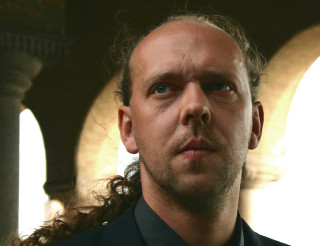
New Managing Director for Bellona Norway
The Board of the Bellona Foundation has appointed former Minister of Climate and the Environment Sveinung Rotevatn as Managing Director of Bellona No...
News

Publish date: September 9, 2014
News
ST. PETERSBURG – The anti-nuclear environmental group Ecodefense was on Monday fined 300,000 rubles ($8,000) in court for not registering itself as a “foreign agent” under Vladimir Putin’s harsh new laws governing Russia’s NGOs.
The group said it was not guilty of any crime and intends to appeal the verdict.
A court in the Kaliningrad enclave Monday handed down the fine to Ecodefense because it allegedly failed to “voluntarily” register itself as a foreign agent – a term under new NGO laws connoting an nonprofit organization receiving funding fro abroad. Rights groups internationally have declared the requirement of this self-appellation as hobbling Russia’s ailing NGO community by saddling it with monikers connoting spies.
The law also stipulates that NGOs engaged in vaguely defined “political activity” must also register as foreign agents.
Frustrated that literally all of Russia’s NGOS but one has refused to register as foreign agents under the new NGO law, which took effect in November 2012, Putin this last June 4 signed a law allowing the Justice Ministry to involuntarily compile a list of NGOs it considered foreign agents.
On July 21, the Justice Ministry of the Russian enclave of Kaliningrad placed Ecodefense on that list because, as stipulated by the ministry “the organization engages in political activity, specifically in the interest of foreign sources [of funding].”
This essentially means the organization has already been listed as a foreign agent, but is now liable for a fine because it didn’t put itself on the list.
The Justice Ministry said that Ecodefense’s open protests of constructing the Baltic Nuclear Power Plant – whose construction was in fact halted – as well as turning public opinion against the plant were political activities funded by a foreign source.

Group co-chair Vladimir Slivyak told Bellona shortly after the Justice Ministry chuffed the group onto the foreign agents list, that the ministry had written in it’s protocol that protesting the state’s nuclear power plants was tantamount to protesting against the state.
“The protests against the construction of the Baltic Nuclear Power Plant and all of Ecodefense’s remaining activities are directed exclusively at defending the environmental rights of citizens,” the groups said in a statement following Monday’s verdict on the fine. “We are not anyone’s ‘agents’ and act only within the framework of independent decisions we take ourselves.”
The statement continued to say that the group would refuse to observe the new NGO statues requiring it to register itself as a foreign agent “because this repressive instrument […] was created with the aim of violating the rights of the citizens of Russia.”
The observation of such a law, said Ecodefense’s statement, “would mean agreement with the course of the Russian government toward derogating civic freedoms, and civil disobedience here is our only natural and correct course of action.”
Ecodefense’s activities are primarily aimed at defending Russian citizens’ environmental rights as they are enshrined in Russia’s constitution.
According to a document Ecodefense submitted to a Moscow court on Monday, “in light of the catastrophic aftereffects of the Chernobyl nuclear disaster in 1986 and the ongoing Fukushima crisis in Japan, which began in March 2011, discussing the risks of new nuclear power plants in Russia is an ecological, not a political, activity.”
Currently, Ecodefense is the only ecological organization that has been included in the Justice Ministry’s roster of foreign agents. Others on the list, which constitutes 10, include the rights organization Memorial, the legal assistance group Public Verdict, the Golos vote monitoring agency and the Agora rights group.

The Board of the Bellona Foundation has appointed former Minister of Climate and the Environment Sveinung Rotevatn as Managing Director of Bellona No...

Økokrim, Norway’s authority for investigating and prosecuting economic and environmental crime, has imposed a record fine on Equinor following a comp...

Our op-ed originally appeared in The Moscow Times. For more than three decades, Russia has been burdened with the remains of the Soviet ...

The United Nation’s COP30 global climate negotiations in Belém, Brazil ended this weekend with a watered-down resolution that failed to halt deforest...